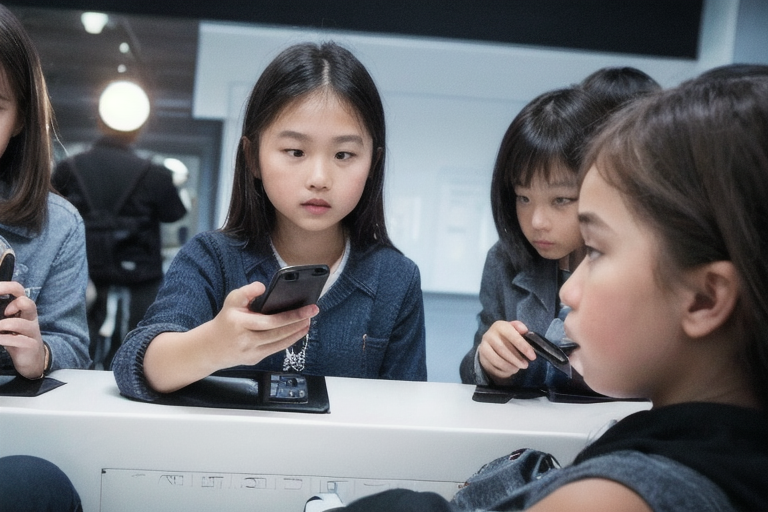
Is your social media habit affecting your brain? Seriously! This video explores the alarming researc
Ever feel like endless scrolling is doing more harm than good? For Gen Z, the latest research is genuinely alarming: studies suggest social media anxiety may be linked to a reduction in grey matter in key brain areas. Seriously, could your feed be shrinking your brain?
Gen Z’s Social Media Anxiety: Is It Actually Shrinking Brains?
Hey everyone, your favorite digital explorer is back with another deep dive into the captivating, sometimes unsettling, world of the internet! Don’t forget to like and subscribe for more fascinating facts and rabbit hole adventures.
Today, we’re tackling a topic that’s both fascinating and, frankly, a little terrifying: the impact of social media on Gen Z’s brains. Is your constant connection costing you more than just time?
The Correlation Between Social Media Use and Anxiety in Gen Z
Gen Z, the true digital natives, have grown up with social media as an inseparable part of their lives. But is this constant connectivity coming at a hidden cost? Let’s examine the numbers.
Social Media Usage: A Generation Always Online
Gen Z spends an average of 9 hours per day online, a significant portion of which is dedicated to social media platforms like TikTok, Instagram, and Snapchat.

Studies reveal that many check their phones within minutes of waking up and right before going to sleep, perpetuating a relentless cycle of engagement.
Anxiety on the Rise: A Troubling Trend
Unfortunately, this hyper-connectivity coincides with a concerning surge in anxiety disorders and other mental health challenges among Gen Z.
According to the American Psychological Association, Gen Z is more likely to report experiencing mental health issues than older generations.
The Link Between Scrolling and Stress: More Than Just a Feeling
Research increasingly suggests a strong link between high social media usage and these mental health concerns. Studies have demonstrated a correlation between increased screen time and feelings of anxiety, depression, and social isolation.
The relentless exposure to curated content, the pressure to maintain a perfect online persona, and constant online comparisons can take a significant emotional toll.
The Shrinking Brain: How Social Media Might Be Impacting Grey Matter
Now for the truly unsettling part: some studies suggest that excessive social media use is associated with alterations in brain structure, specifically a reduction in grey matter volume.
Understanding Grey Matter: The Brain’s Processing Power
Grey matter is the brain tissue primarily responsible for processing information, including sensory input, motor control, and higher-level cognitive functions like decision-making and emotional regulation.
Think of it as the brain’s central processing unit, the powerhouse behind your thoughts and actions.
Brain Regions at Risk: Vulnerable Areas
Several brain regions appear particularly susceptible to the potential effects of excessive social media use. These include the amygdala (critical for processing emotions, particularly fear and anxiety), the prefrontal cortex (essential for decision-making, planning, and social behavior), and the anterior cingulate cortex (ACC), which plays a crucial role in emotional regulation and cognitive control.
The Studies Speak Volumes: Concerning Correlations
Studies utilizing MRI technology have revealed a correlation between high social media use and reduced grey matter volume in these critical brain regions.
For instance, a study published in Brain Imaging and Behavior found that individuals who spent more time on social media exhibited lower grey matter volume in the amygdala.
This finding is particularly concerning, given the amygdala’s vital role in managing stress and anxiety. Another study demonstrated similar reductions in the prefrontal cortex, potentially impacting decision-making abilities and impulse control.
The Role of Fear of Missing Out (FOMO) and Social Comparison
So, what factors might be driving these potential changes? A major contributor appears to be FOMO and the pervasive social comparison inherent in social media culture.
Defining FOMO: The Modern Plague
FOMO, or the Fear of Missing Out, is the nagging feeling that others are having more fulfilling or rewarding experiences than you are.
It’s a widespread phenomenon among Gen Z, fueled by the carefully curated highlight reels that dominate social media feeds.
The Comparison Trap: A Vicious Cycle
Social comparison is another significant factor. When users are constantly bombarded with images of seemingly perfect lives, they inevitably begin comparing themselves to others.
This can trigger feelings of inadequacy, low self-esteem, and heightened anxiety.
Neurological Impact of Comparison: The Brain on Likes
The neurological connection is becoming increasingly clear. Studies have indicated that social comparison activates the brain’s reward centers, similar to the effects of gambling or drug use.
This can create a cycle of seeking validation and approval through likes and comments, further reinforcing the behavior and potentially contributing to structural changes in the brain.
Potential Long-Term Effects and Mitigation Strategies
What are the potential long-term consequences of these changes, and what proactive steps can be taken to mitigate the potential risks?
Long-Term Consequences: A Glimpse into the Future
Reduced grey matter in key social areas could potentially lead to several long-term challenges, including social skills deficits, difficulty with emotional regulation, and an increased risk of developing anxiety disorders and depression. Individuals might struggle with face-to-face interactions, find it challenging to interpret social cues, and experience greater emotional instability, impacting their overall well-being and quality of life.
Strategies for a Healthier Digital Life: Taking Control
Alternative Activities: Reclaiming Your Time and Mind
It’s crucial to replace excessive social media engagement with activities that foster genuine social connection and promote overall mental well-being:

- Face-to-Face Interactions: Prioritize spending quality time with friends and family in real-life settings, fostering deeper connections and meaningful experiences.
- Hobbies: Actively engage in activities that bring you joy, allow you to express your creativity, and provide a sense of accomplishment.
- Physical Activity: Embrace exercise as a powerful tool for effectively reducing stress, boosting mood, and improving overall physical and mental health.
Gen Z faces a unique and unprecedented challenge: navigating a world saturated with social media while actively safeguarding their mental and neurological well-being. By understanding the potential risks associated with excessive social media use and proactively adopting healthier digital habits, they can harness the power of social media without sacrificing their mental health or potentially compromising their brain health.
So, what are your thoughts? Is social media fundamentally rewiring our brains for the worse, or can we learn to leverage it responsibly and mindfully? Share your insights and personal experiences in the comments section below!
If you found this information valuable and insightful, please share this article with your friends and family! Let’s collectively raise awareness and spark a meaningful conversation about the profound impact of social media on mental health and overall well-being.
Enjoyed this? Check out our YouTube channel for video versions!
Enjoyed this? Check out our YouTube channel for video versions!



